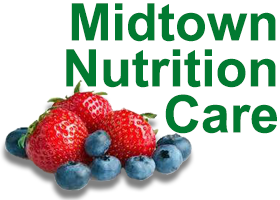MENOPAUSE
During menopause a woman’s body will undergo hormonal changes. When estrogen levels decline a woman will be more susceptible to weight gain, increased risk of cardiovascular disease, bone loss and mood fluctuations. Maintaining a healthy lifestyle, proper nutrition and physical activity can help manage these challenges.
WEIGHT
Managing weight may be more difficult due to the metabolic changes of menopause. You should focus on balanced meals and nutrient dense foods. Include a variety of fruits and vegetables, whole grains, lean protein and healthy fats, while limiting processed foods and sugary foods. Cruciferous vegetables like kale, broccoli, cauliflower, brussels sprouts and bok choy can be helpful to counter the drop in estrogen.
HEART HEALTH
Estrogen has a protective effect on the heart. To support heart health and good cholesterol levels, you should reduce saturated and trans fats, increase healthy fats like avocados, nuts, salmon, tuna, cod and sardines, and increase high fiber foods like whole grains, oatmeal, beans, lentils, flax seeds, chia seeds, vegetables and fruits with skins.
BONE HEALTH
The decline in estrogen levels can also lead to accelerated bone loss and an increased risk of osteoporosis. Adequate intake of Calcium and Vitamin D is essential. Aim for Calcium 1200 mg/day by including milk or fortified milk alternatives, yogurt, cheese, tofu, leafy greens and beans. Aim for Vitamin D 600 IU daily. Vitamin D can be found in fish, dairy, plant milks and fortified orange juice. You can also boost your Vitamin D with 15 minutes of direct sunlight.
MOOD
You may experience mood swings, irritability, sleep disturbances and hair thinning during menopause due to hormonal fluctuations. Consuming foods high in vitamins, minerals and phytoestrogens may assist in alleviating symptoms. Soybeans, soy products, and flax seeds may increase your estrogen and may help with hot flashes and bone density. Magnesium can be an important mineral to add if you are having sleep disturbances and feeling stressed. To support hair growth, make sure your diet is adequate in protein, omega-3’s, B vitamins, biotin, iron and zinc.
EXERCISE
Exercise during menopause has multiple health benefits. Aerobic and strength training exercises will help overall cardiovascular health, weight management, bone health, mood and sleep. During menopause some women may experience urinary incontinence or an increase in urinary tract infections. Kegels, yoga and Pilates can assist in strengthening the pelvic floor muscles.
